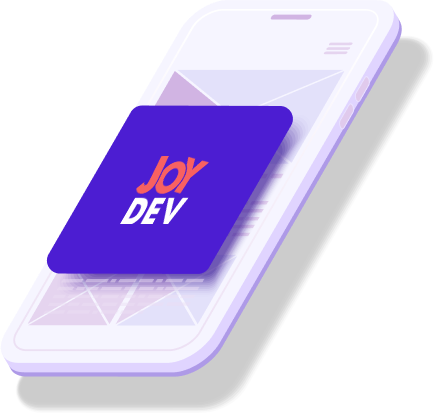John has been working as a developer in one IT company for several years already. He came here after the University. The knowledge he received during his studies was enough to succeed at the interview and show the skills the employer expected from him. But as time passes, John’s KPI doesn’t grow up. What keeps John away from moving up the ladder?
In fact, John is a typical developer in the imagination of many people. He is sitting quietly in front of his laptop, isn’t eager to communicate, can stick for a long time trying to solve one task, can’t explain in simple words the problem he faced. But the time when these specialists were highly esteemed, has passed. It’s not enough now to have the minimum knowledge required to fulfill duties at work. It’s more important to have a wide range of skills and personal qualities covering various areas, or so-called soft skills.
What are Soft Skills in IT?
This is a set of skills that go beyond the scope of technical skills. It’s impossible to imagine a developer without the skills in programming, logic, and maths. But it’s impossible to imagine the work of a developer in the company with other people without communicative, strategic, and creative skills.
All soft skills in IT can be divided into several categories: personal, communicative, and team (mentor). Let’s view each of them and see what their development can bring.
Personal skills
We suggest reviewing the main soft skills according to the competency levels of developers. As you know, there are 3 levels: junior, middle, senior. To develop each of them it’s important to focus on a particular set of skills. For example, self-education is extremely important for a beginner (and for an experienced one), because this is the first step to become a professional.
- Flexibility. We mean both mental flexibility that is necessary for increasing your creativity and finding new ways to solve common problems, and flexibility in communication with other people. To increase your mental flexibility, there are many helpful exercises. For example, you can always train your cognitive abilities with the exercise Fantastic Binomial. It was created by the famous writer for children Gianni Rodari. The sense of this technique is to take two words with absolutely different meanings and make up 5-10 correct sentences. You may think that this is rather easy, but after 1-3 sentences you will feel that your imagination is blown over.
You can also use one of the methods by V.N. Kelasyev. For example, you can change the common time connections or imagine another order of common things. For example, at first, it thunders, and only then it lightens. Or you can imagine the dialog between two people from different epochs. Such paradoxes stimulate a person's cognitive abilities, making him or her look at common things from another point of view.
- Ability to google the problem. It’s important not only for a developer but for any up-today specialist. On facing the problem it’s necessary to apply for the endless resource of the Internet instead of sitting and torturing yourself trying to solve it unsuccessfully. But you should also stick to the middle here. If you’re solving a problem for several hours and still have no result, you should ask your colleague for help.

- Self-discipline is connected to the previous point. Punctuality and ability to organize your work help to restrain yourself and bring the result within the given period of time.
- Self-confidence is a more psychological requirement for any worker. It’s difficult to speak about the motivation to work and career improvement when an employee doesn’t believe in himself and is afraid to start any task knowing in advance that failure is inevitable. You should become self-confident if you want to grow.
- Ability to adapt. Projects are different, so you should know how to integrate with your co-workers and always show your skills in any situation.
- Creativity can’t be neglected in big projects requiring feedback and advice from the developer. You can develop it during brainstorms while reading books and speaking with creative people.
Communicative
At the middle level, the developer starts to distinguish himself from other developers and starts to communicate better with the team. It means, that it’s impossible to do without communicative skills now.
- The ability to communicate is one of the most important skills, that can help you to interact successfully with other workers. One of the responsibilities of a developer is to communicate with a PM, QA, other developers, and clients. Your image will depend on the ability to explain the current status of your tasks and problems.
- Empathy helps to stay objective in the assessment of your colleagues’ work. It makes the working atmosphere comfortable when everybody understands the feelings and emotions of each other and can walk in his/her shoes. One more aspect of empathy in the development process is the ability to understand the needs and requirements of a client.
- Tolerance is logically connected to the previous point. It supposes that you can assume the failures of other people and accept them without going mad and yelling at them. We all are people and sometimes we can make mistakes. You should remember about this and let it down easily.
- Openness means that you’re ready to listen to the ideas of other people, view other theories and suggestions.
- The ability to solve conflict situations. Of course, a developer is not a project manager, and mustn’t resolve conflicts. However, it’s the basics of successful team communication. The better understanding you can gain with your co-worker, the more successful performance you will be able to provide.
Mentorship
When you achieve senior level (or earlier), you’re required to fulfill more than writing code. You should as well lead your projects, be a lead developer and mentor other developers.
- The ability to train will be useful both in mentorship when a developer will have to render his knowledge to those who only start to develop, and in teamwork. You should also know how to explain your ideas to others.
- Leadership. If a person wants to be heard, his opinion and experience should be reputable and convincing enough. It’s difficult to gain recognition and run successfully the actions of other people without leadership.
- Sincere communication. At the senior level, you should give something in return for taking open free software. Report about problems, send pull requests, create your own open-source products.

Develop your Soft Skills in IT Together with Joy Dev!
Of course, it’s far difficult to develop all the soft skills. Moreover, these are too far not everything you may need at work. Nevertheless, you should pay attention to them and develop each of them step by step.
We in Joy Dev are always aimed at helping every employee in developing soft skills. It significantly increases the quality of our work. So if you are looking for a team of developers who can release a high-quality and successful project, write to us!








